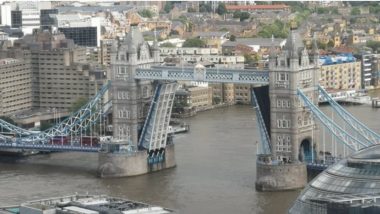London, Oct 10 (AP) The British economy looks like it will avoid falling into recession in the run-up to the scheduled Brexit date after official figures showed that growth held up in the three months through August.
Though the Office for National Statistics found that the British economy contracted by a monthly 0.1 per cent during August, that was offset by an equivalent upward revision to July's growth rate to 0.4 per cent.
That means that the economy would have to contract sharply in September for the third quarter as a whole to be negative. Few economists expect that to happen, not least because of evidence that firms are stockpiling goods ahead of the scheduled Brexit date of Oct 31.
Firms fear that Britain could leave the European Union without a deal, which would mean widespread disruption to supply chains and the imposition of tariffs and other impediments to trade.
Earlier this year, in the run-up to the original Brexit date of March 29, the stockpiling had helped the economy grow 0.5 per cent in the first quarter.
After the Brexit date was postponed, the stockpiling dissipated in the second quarter and the British economy contracted by 0.2 per cent. Were it to shrink again in the third quarter, it would officially be in recession — the common definition is two consecutive quarters of negative growth.
Though a recession appears unlikely for now, economists think growth will remain muted as long as Brexit uncertainty lingers, weighing on business investment in particular.
The uncertainty is set to persist. Though the British government says the country will leave the EU at the end of the month, legislation requires Prime Minister Boris Johnson to seek an extension to the departure if no withdrawal agreement is secured by Oct. 19. (AP)
(This is an unedited and auto-generated story from Syndicated News feed, LatestLY Staff may not have modified or edited the content body)













 Quickly
Quickly





















